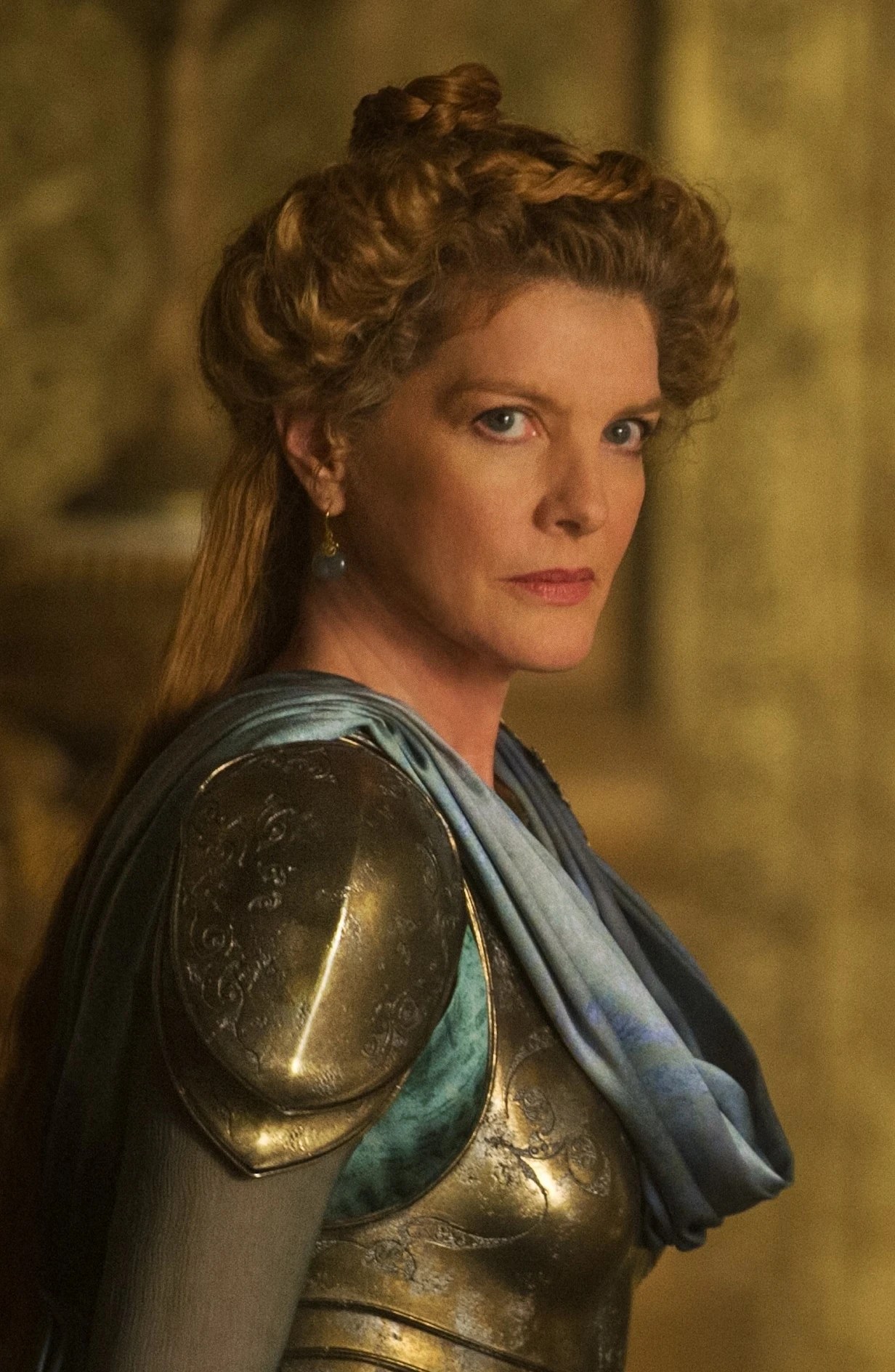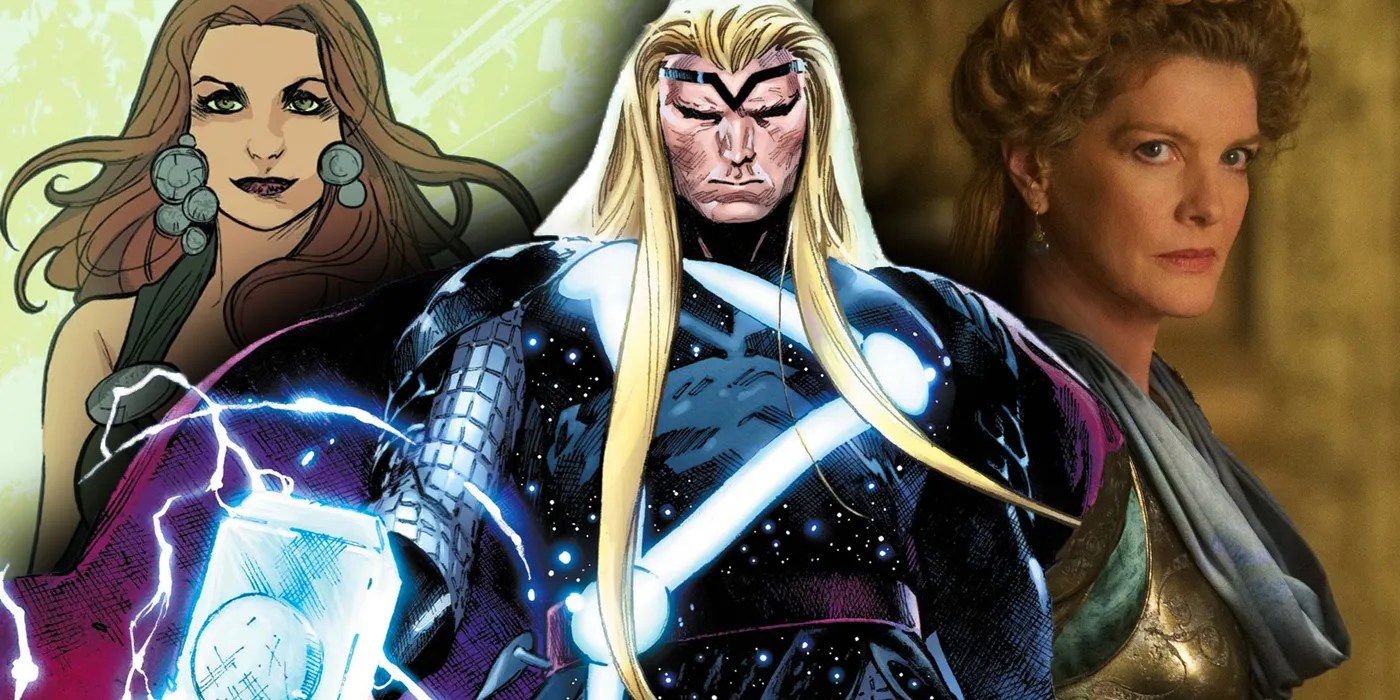Thors Mother: The Untold Story Of Frigga In Norse Mythology
In the realm of Norse mythology, few figures stand as prominently as Thor, the god of thunder. However, behind every great god is an equally compelling figure, and in Thor's case, that figure is his mother, Frigga. Frigga, the goddess associated with love, marriage, and motherhood, plays a crucial role in the narrative of the Norse pantheon. This article will delve deep into the life and significance of Thor's mother, Frigga, exploring her origins, her relationships with other gods, and her vital role in Norse mythology.
As the wife of Odin, the Allfather, and the mother of Thor, Frigga's influence extends beyond her immediate family. She embodies the ideals of motherhood and protection, illustrating the balance of power and affection in the Norse gods' realm. Her character is often overshadowed by the might of her husband and son, but her wisdom and strength are equally formidable. Understanding Frigga's role provides a deeper insight into the dynamics of the Norse gods and their stories.
This comprehensive guide will cover various aspects of Frigga's character, her mythological significance, and how she has been represented in modern culture. From her nurturing nature to her strategic thinking, we will explore why Frigga deserves recognition as one of the powerful figures in Norse mythology. Get ready to uncover the layers of Thor's mother, Frigga, and appreciate her crucial role in the epic tales of gods and heroes.
Table of Contents
- Biography of Frigga
- Personal Data and Biodata
- Frigga's Role in Norse Mythology
- Relationships with Other Gods
- Symbolism and Attributes
- Frigga in Modern Culture
- Conclusion
- Sources
Biography of Frigga
Frigga, often referred to as the goddess of fertility, love, and marriage, is one of the most revered figures in Norse mythology. She is primarily known as the wife of Odin and the mother of Thor. While much of her life is intertwined with the tales of her husband and son, Frigga has her own unique narrative that showcases her strength and influence.
Her name, Frigga, is derived from the Old Norse word "frigg," which means "beloved." This title reflects her role as a nurturing mother and a devoted wife. In various myths, Frigga is portrayed as a wise and powerful figure, capable of foreseeing the future. Despite her foresight, she is often bound by the limitations of fate, a recurring theme in Norse mythology.
Personal Data and Biodata
| Name | Frigga |
|---|---|
| Role | Goddess of Love, Marriage, and Motherhood |
| Spouse | Odin |
| Children | Thor, Baldr |
| Domain | Asgard |
| Symbol | Wool, spinning wheel |
Frigga's Role in Norse Mythology
Frigga is not only a maternal figure but also a goddess of immense power and wisdom. She plays a crucial role in various myths and legends, influencing the course of events in the lives of the gods. As the mother of Thor, she is often involved in his adventures and challenges, providing guidance and support.
In the myth of Baldr's death, Frigga's role is especially significant. She makes every creature promise not to harm her son, but she overlooks the mistletoe, the only plant that poses a threat to Baldr. This oversight leads to a tragic turn of events that highlights the complexities of fate and the limitations even gods face. Frigga's actions in this myth demonstrate her protective nature, as she is devastated by the loss of her son and takes on the role of a mourning mother.
Relationships with Other Gods
Frigga's relationships with other gods are integral to understanding her character and role in Norse mythology. As the wife of Odin, she shares a bond filled with both love and conflict. Odin, known for his quest for knowledge, often leaves Frigga to pursue his ambitions, which can create tension in their relationship.
Relationship with Odin
Odin and Frigga's relationship is complex, as they are both powerful figures with their own agendas. While Odin is often depicted as a solitary seeker, Frigga embodies the nurturing and protective qualities of motherhood. Their dynamic illustrates the balance between power and emotional connection within the divine family of Asgard.
Relationship with Thor
As Thor's mother, Frigga's influence is evident in her son's character. While Thor is known for his strength and bravery, he also exhibits a deep sense of loyalty and love for his family, qualities that can be traced back to Frigga's nurturing nature. Their relationship is one of mutual respect, and Frigga often provides Thor with guidance during his adventures.
Symbolism and Attributes
Frigga is often associated with various symbols that represent her attributes. The spinning wheel is one of her primary symbols, signifying her role as a goddess of fate and destiny. Additionally, she is linked to wool, representing warmth and comfort, qualities often attributed to motherhood.
Her capacity to foresee the future also sets her apart from other deities, as she embodies wisdom and insight. This foresight, however, is a double-edged sword, as it binds her to the fate of her family and the world around her.
Frigga in Modern Culture
In recent years, Frigga has gained recognition in modern culture, particularly through adaptations in films, television shows, and literature. Her character has been explored in various ways, often emphasizing her strength and wisdom.
In the Marvel Cinematic Universe, Frigga is portrayed as a powerful and loving mother, showcasing her nurturing side while also highlighting her strength as a warrior. This representation has contributed to a renewed interest in her character, prompting audiences to explore her origins and significance in Norse mythology.
Conclusion
Frigga, Thor's mother, is a multifaceted character whose influence resonates throughout Norse mythology. Her role as a nurturing mother, a wise goddess, and a powerful figure underscores the importance of the feminine in the tales of gods and heroes. By understanding Frigga's character, we gain deeper insight into the complexities of Norse mythology and the dynamics of the divine family.
We encourage readers to delve further into the world of Norse mythology and explore the myriad of stories that feature Frigga and her family. Share your thoughts and insights in the comments below, and don’t forget to check out our other articles on mythology and folklore!
Sources
- Hollander, Lee M. "The Poetic Edda." University of Texas Press, 1999.
- Faulkes, Anthony. "The Prose Edda." Viking Society for Northern Research, 1995.
- Thorpe, Benjamin. "Northern Mythology." 1851.
- Marvel Studios. "Thor" and "Thor: The Dark World."
Exploring The Life And Career Of Gal Adam: A Journey Through Music And Success
Ichigo Shirt: The Ultimate Guide To Stylish And Comfortable Fashion
Exploring The World Of Bleach Show: A Comprehensive Guide


